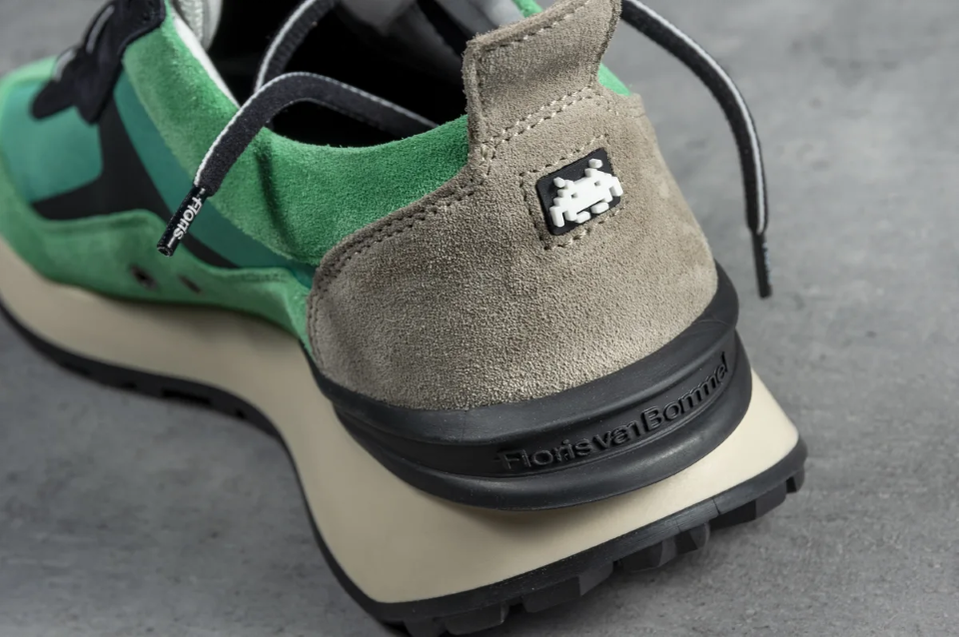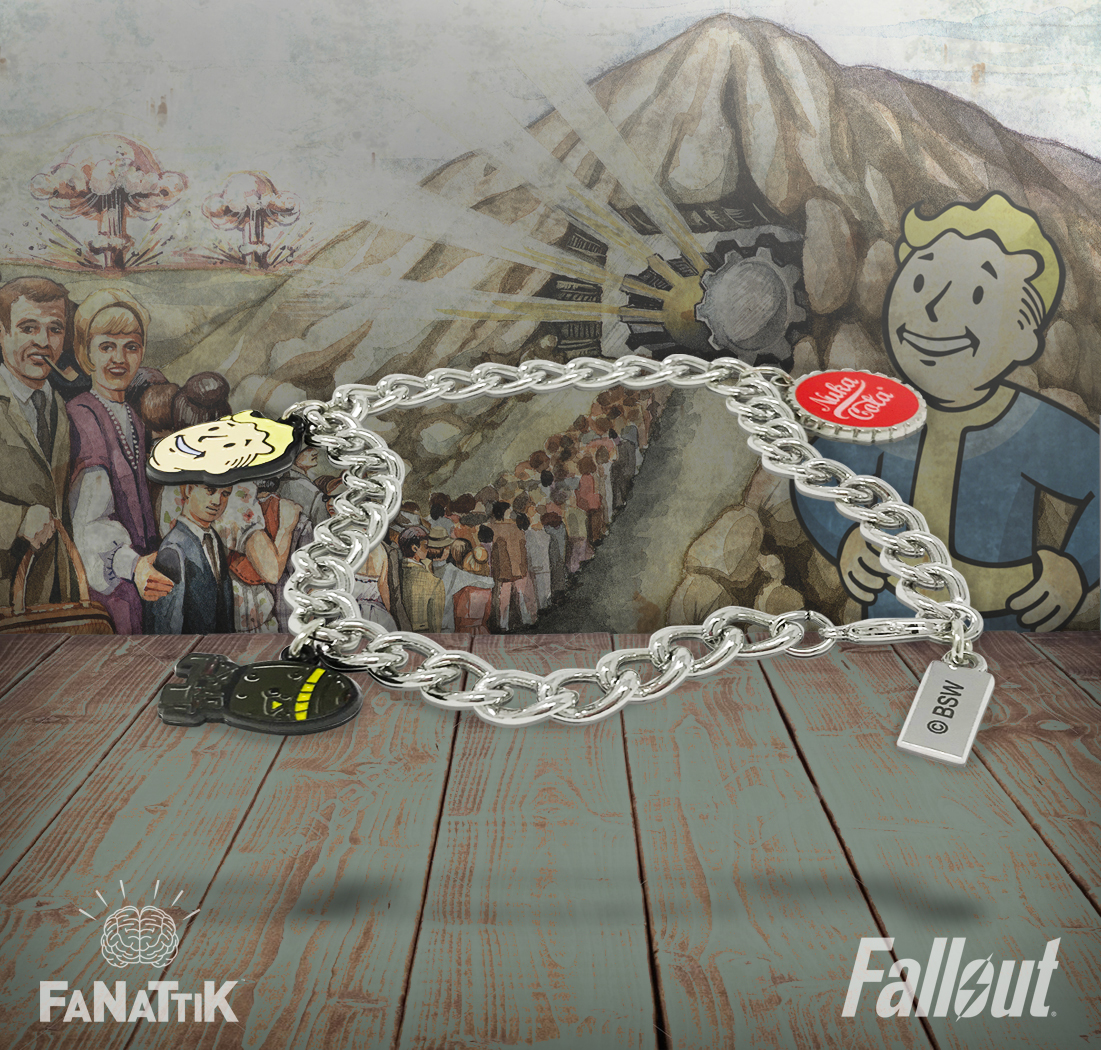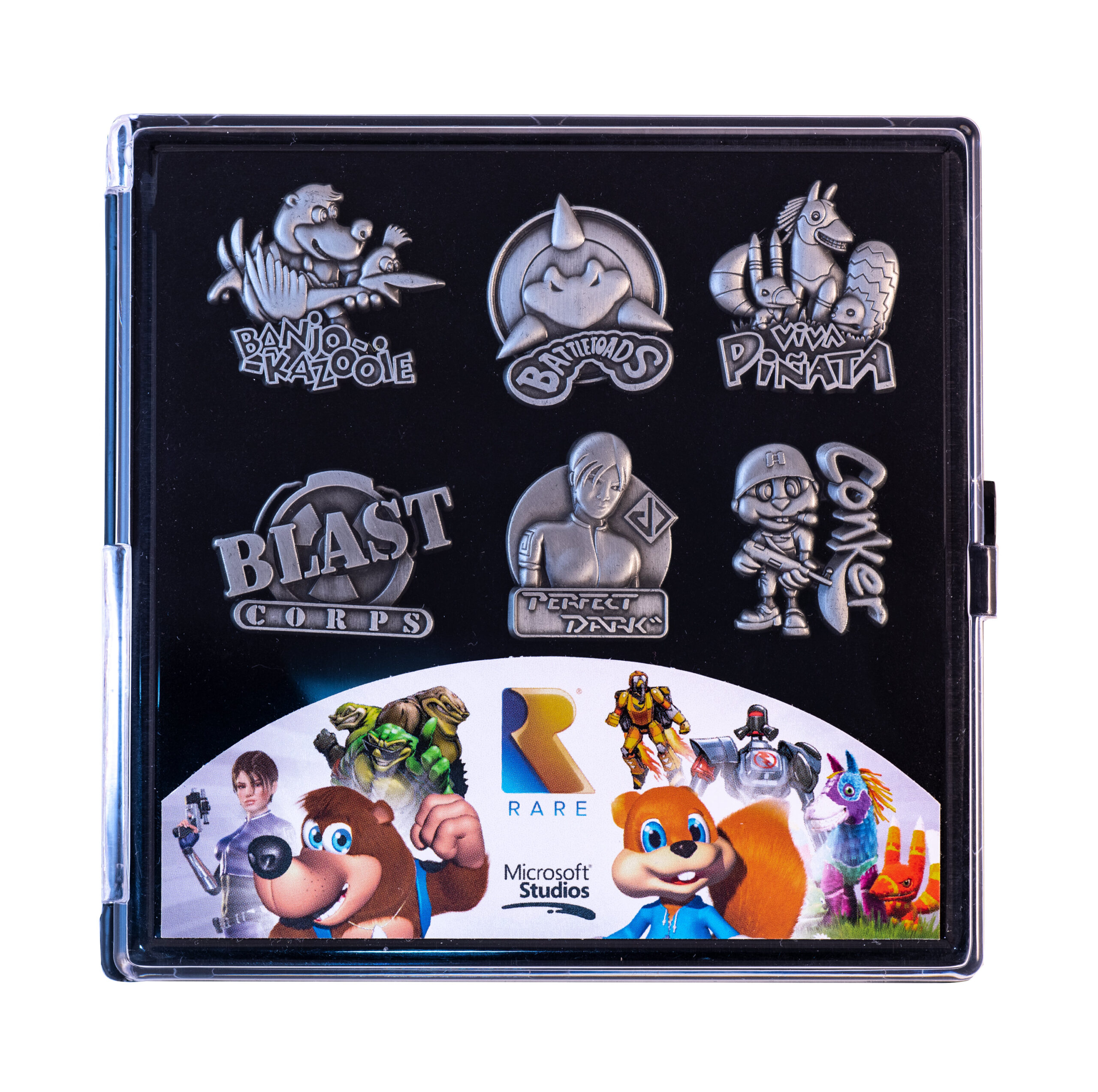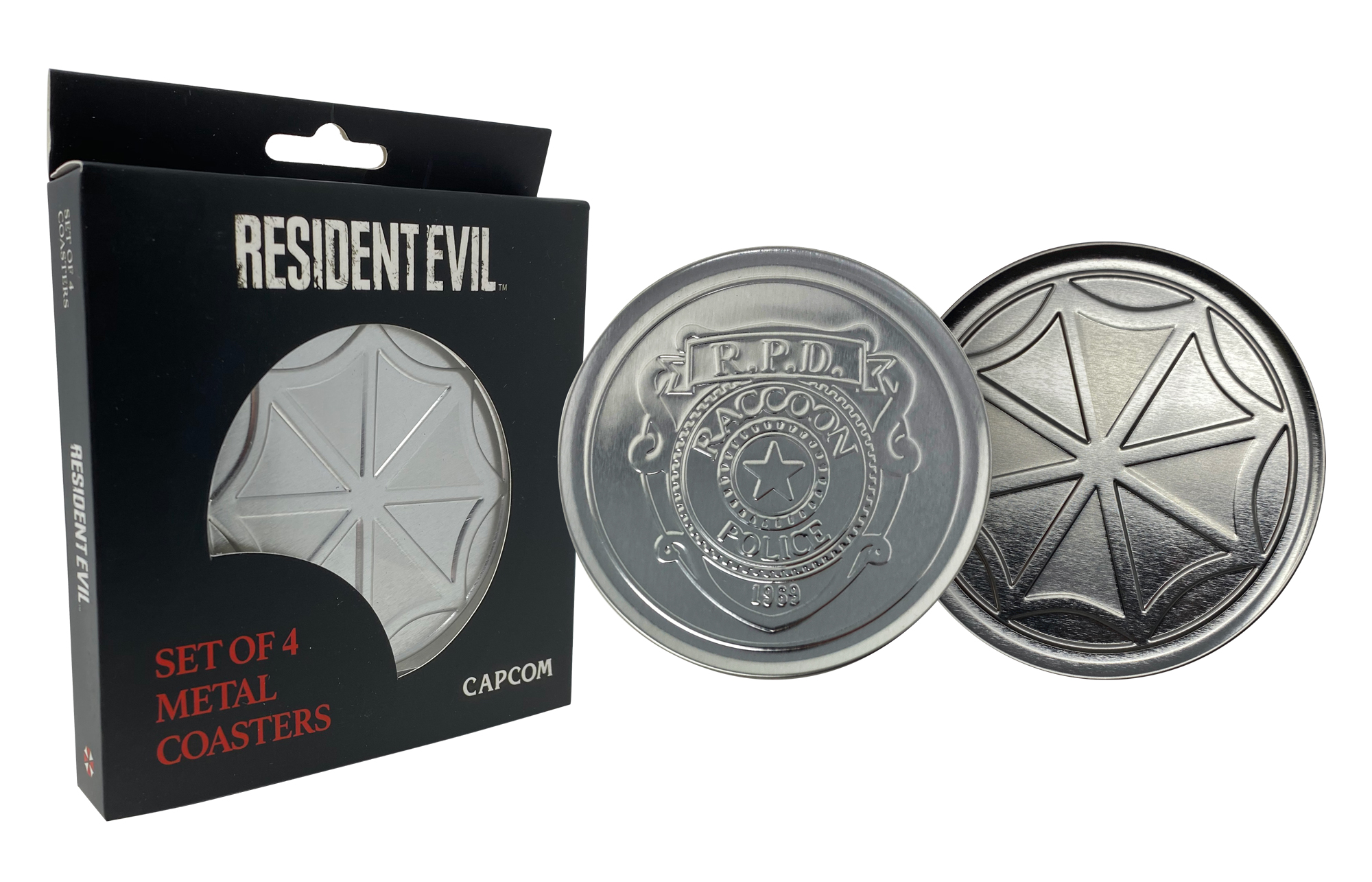Co-founded by the Konami alumni and video gaming and geek culture enthusiasts, Sandra Arcan and Su-Yina Farmer, right around the same time that the video game licensing scene underwent its most recent metamorphosis and really took off in its current form, Bits + Pixels is a specialist agency with a lot of skin in the game.
Since its foundation, ‘unpredictability’ has been the message at the core of the work – and partnerships and collaborations – that this duo have set out to achieve; keen to establish a new kind of geek and pop culture product for a new kind of geek and pop culture audience. It’s why the firm has introduced us to the likes of the Destiny x Palladium footwear range, or the Resident Evil 2 Zombie make-up kit.
In fact, Bits + Pixels is interested in one thing; and that’s innovating in a licensing space filled with creativity. It’s perhaps why the pair’s latest endeavor is to change up the narrative to see the significant female gaming audience better represented in the licensed consumer products space, in a reflection of a female gaming audience in both size and importance. Could that mean that we’re about to see video gaming leave a far greater mark on the health and beauty space in the near future? Well, according co-founder, Sandra Arcan, certainly yes, if Bits + Pixels has anything to do about it.
Licensing.biz catches up with Arcan to learn more about the company’s plans, approach, and onus on keeping it all unpredictable when it comes to innovating and discovering a new future for the video game licensing space.

You guys have a rich history with the video game space, can you talk us through what brought you together to create Bits + Pixels, what the company brings to the video game licensing sector and how you guys are looking to stimulate innovation in the space?
The creation of Bits + Pixels was really the result of two things happening around that time, namely rediscovering my love of gaming when working with Konami on their licensing, and that being just at the time when interest in the sector was building momentum. I felt it was the right time to set up that specialist service and did so with my Konami colleague and friend, Su-Yina Farmer.
We bring knowledge and passion for gaming and ‘geek culture’ and a strong sense of wanting to do right by the gaming studios and communities that we work with and wanting to do some really cool, standout things along the way. The main way we think we can stand out is by bringing partnerships that are perhaps initially unexpected but, in fact, make a lot of sense.
How has Bits + Pixels evolved since you launched, and how reflective is this evolution of the video game and video game licensing sector today?
We’ve organically grown our services, initially through the strength of our relationships with clients who entrusted us with projects outside of licensing, namely event production. Su-Yina has event planning experience which made this very seamless and we’ve been able to secure additional event based work since then.
We’ve also been helping brands both inside and out of the games industry engage gamers through influencer marketing and talent recruitment. Influencers have been moving the needle for some time when it comes to product launches, brand awareness and credibility objectives, and now it’s becoming increasingly common to engage them for gaming licensed product launches. These new service components sometimes come together nicely into one project, with licensing, event and influencer elements, such as the Destiny Community Mixer we produced for Bungie in December 2019.
What sort of step change have we seen in the video game licensing sector in recent years, and what has fuelled this? Looking at the clients you’ve worked with and the partnerships you’ve overseen in the space – there’s a new level of innovation and immersion in IP/game brands being explored right now. How exciting is the video game licensing space right now?
Gaming is just ever more present everywhere you look within the entertainment sector. More gaming IPs are being adapted to the small and big screen, more high profile actors are voicing characters in games, more high profile brands are partnering with gaming franchises, and these are just some of the reasons everyone has been wanting to get involved and innovate in this area. So it is extremely exciting and full of potential, and it’s why you’re seeing more licensees, agencies and retailers proactively chasing opportunities.
What is important to keep things exciting is the intent to keep trying new things and push forward with broader selections of games and product categories, otherwise there will inevitably be stagnation and repetition.

What do you think has driven this more developed and creative approach to video game licensing?
Gamers demand well designed products. Previously, they would take what was available, but they now have an increasing choice of creative consumer products and, as such, expect that even more. If you look at the highest end of product development, such as premium collectible figures, you see that gamers will invest in a special product if it’s executed well. That certainly applies to all categories too, so brands and licensees are striving to deliver that as much as they can.
How receptive have retailers and licensees become to the video game licensing sector in recent years? Why do you think this is?
For that matter – how do you think games companies and publishers have changed their approach to licensing – has the perception shifted? How important has licensing’s role become in the video gaming space?
Retailers and licensees have been very receptive, albeit that many take time to understand the opportunity before going in with a bid for gamer’s attention (something we very much support, of course!). They know it’s an extremely appealing consumer as they spend more time in their favourite gaming franchises (often hundreds of hours) than in other entertainment consumption activities such as watching TV series or movies.
When it comes to gaming companies, most have been keen to offer a licensing programme during recent years. Often, the main thing that might stop them jumping in is the know-how and resources. However as more brands are launching their own licensed collections, studios are looking on and realising they need to invest in either in-house expertise or that of an external agency like ours.
They all know how important a physical product is as an additional brand touch point, but it’s just about being comfortable and ready to set up the right operation for it.
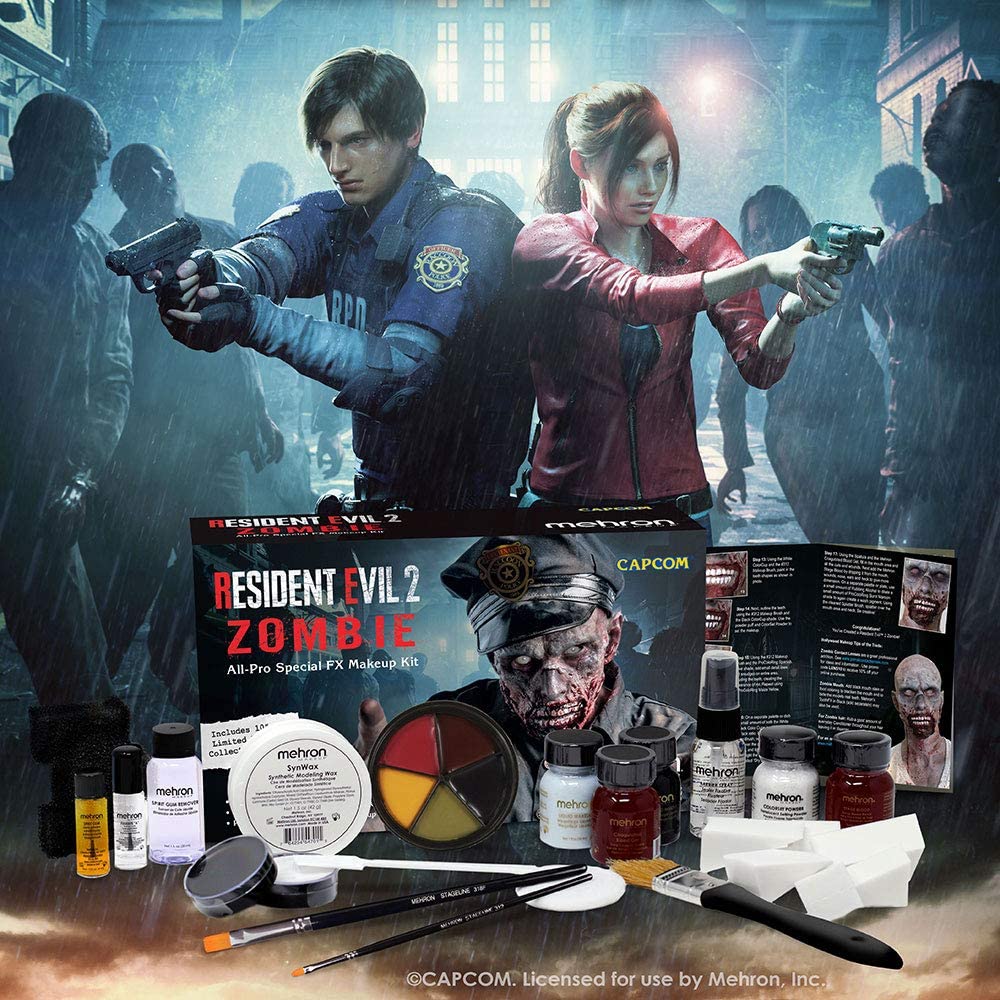
Can you tell us about some of your favourite or most successful partnerships in the video game sector? How have these shaped your own approach to video game licensing or set a course for what the future of video game licensing may look like?
We’ve had two tremendously successful launches of the Destiny x Palladium brand collaboration. Another one we loved working on was the collaboration between Capcom’s Resident Evil 2 and cosmetics brand, Mehron. Mehron, being the leader in professional special effects makeup, were able to bring their expertise from working on Broadway, Hollywood sets and Cirque du Soleil, to making a super fun Resident Evil 2 Zombie Cop makeup kit. The common thread with these two partnerships was the strength of the fit between the brands which fans really ‘got’ and appreciated.
We will always target partnerships that prompt a reaction of ‘oh, that’s interesting’ followed by an understanding of why it makes complete sense. If it’s initially unexpected, that’s even more exciting for us personally as unpredictability, when done right, is arguably more engaging.
What categories would you like to see gaming IP move into?
We’d love to see the significant female gaming audience better represented in the licensed consumer products area. Beauty and more female-targeted categories, to reflect the importance and size of the audience would be great to see and something we’re currently working on, so watch this space!
What’s going on in the video gaming sector right now that could impact the look of its licensing activity in the coming years? I.e game streaming, things like Fortnite Creative, player immersion and the idea of the digital self etc?
There is definitely a lot of user-generated content out there from various gaming titles, however it is generally a more complicated proposition to license. Streaming is such a popular, engaging and influential way for people to consume gaming content, so we’ll for sure see more top streamers with their own licensed product collections in mainstream retail.
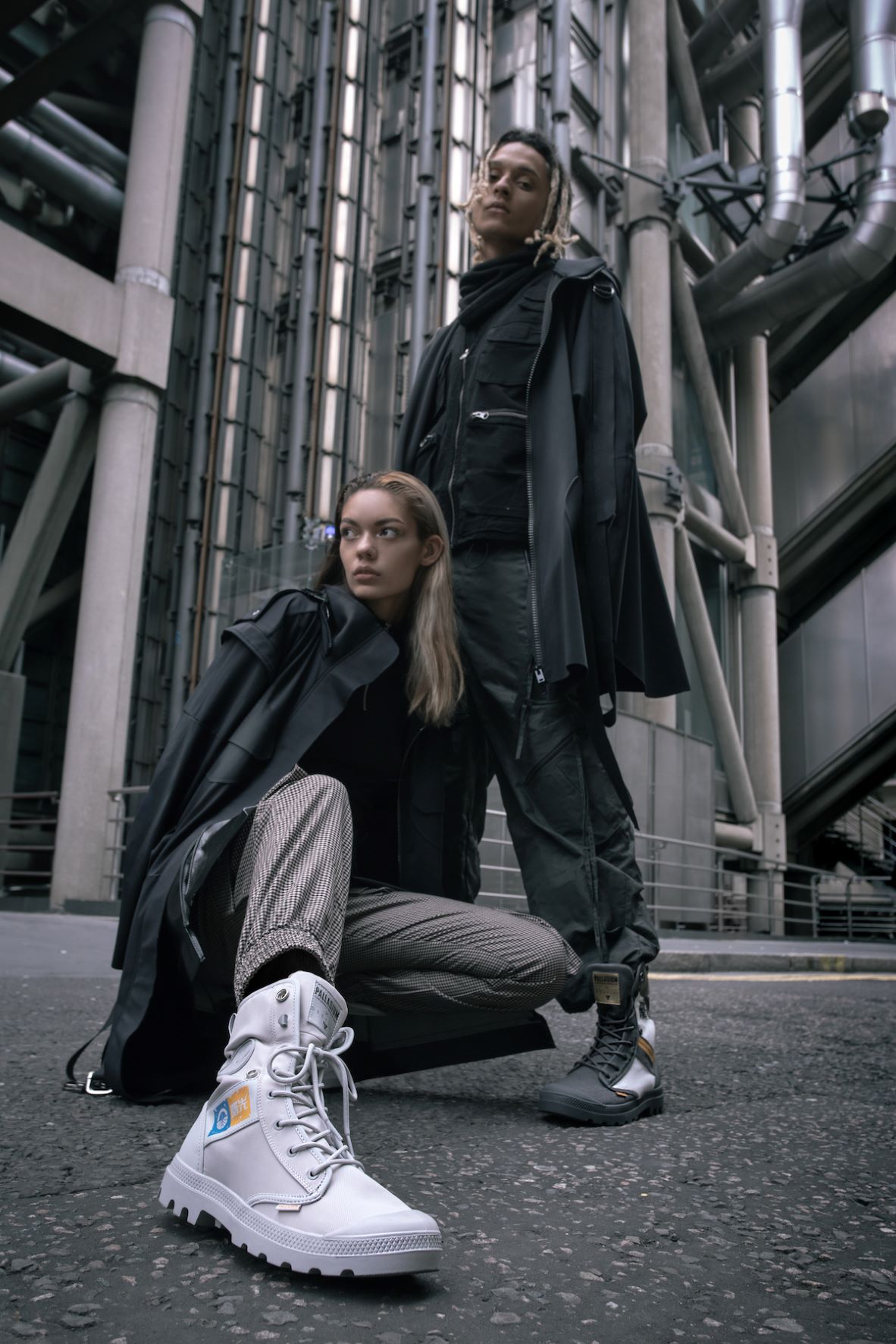
What’s next for video game licensing? Is it headed in the right direction?
I’m hoping that we’ll see more retailers getting involved with video game licensing, and that the ones that are already offering a gaming proposition will go even further in a more representative way. There are just so many amazing gaming brands with extremely active fanbases, so it would be a shame not to see some more of these on the shelves of high street and independent retailers. In the meantime, we’re seeing more gaming brands developing their own comprehensive ecommerce stores and this is truly one of the most effective ways to drive merchandise sales organically through the brand’s own ecosystem.
I think we are bound to see more brand collaborations too, and hopefully in an ever more diverse set of categories.
Thank you Sandra, for your time chatting with us. Before we let you go, tell us, what’s next for Bits + Pixels?
We want to remain at the forefront of whatever is relevant in gaming and how gamers are consuming content related to it. We have some exciting projects in the pipeline which will hopefully continue to bring brands, creators, concepts and ideas together in imaginative ways.











